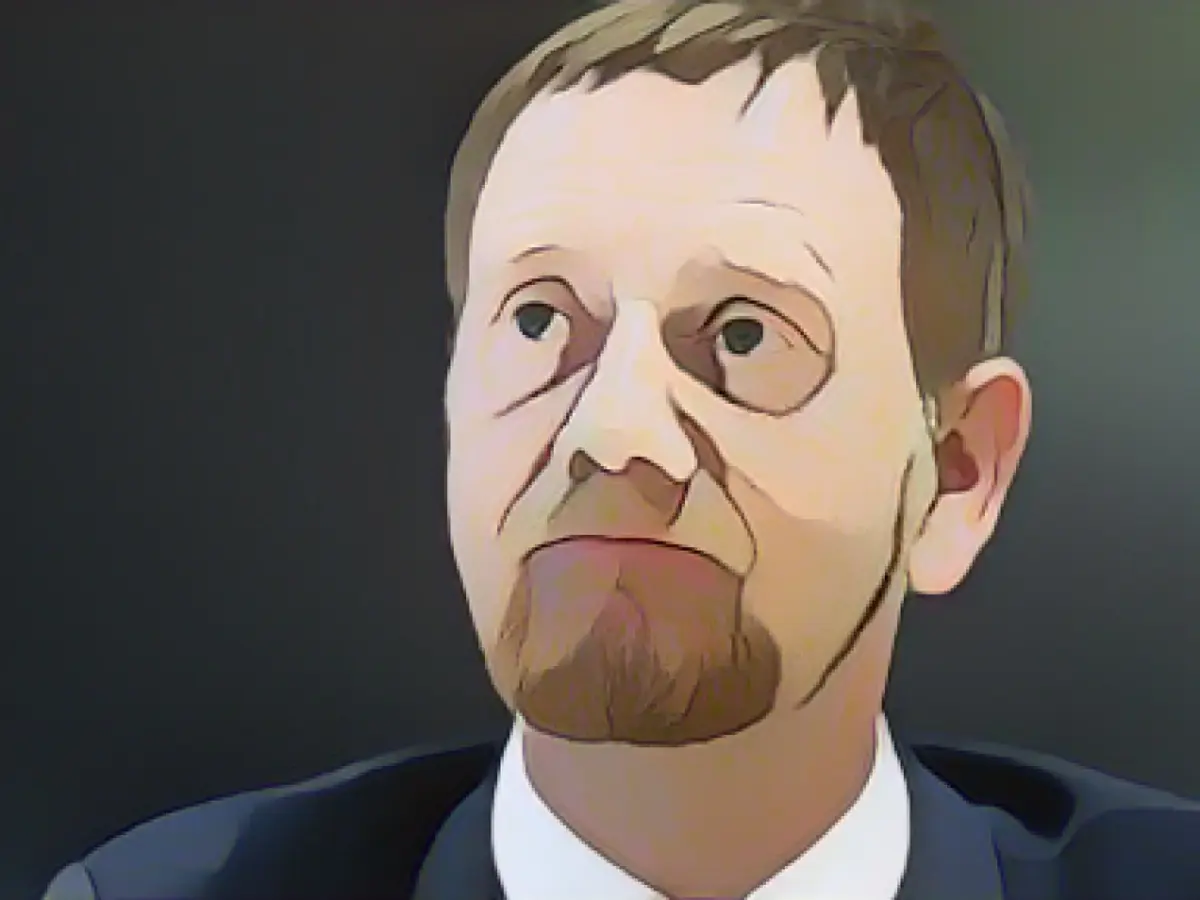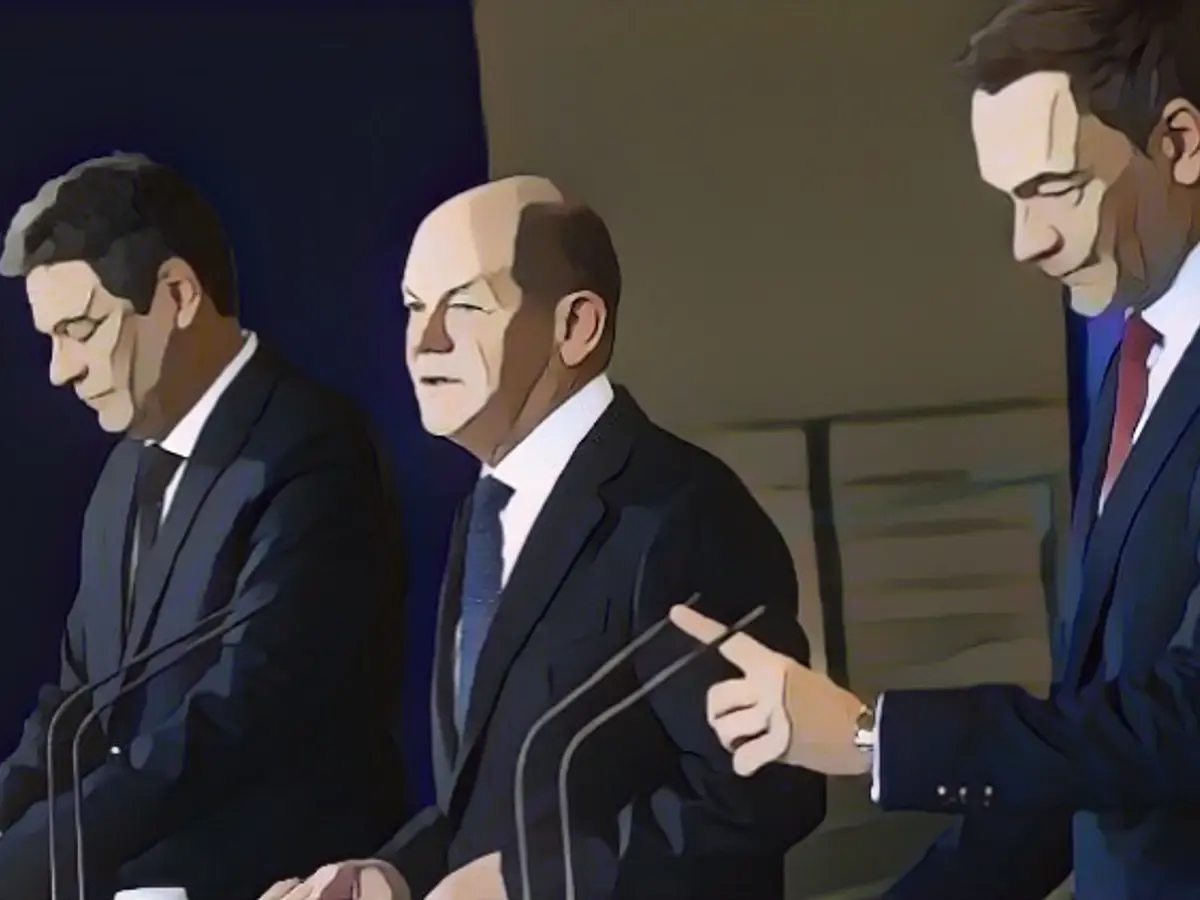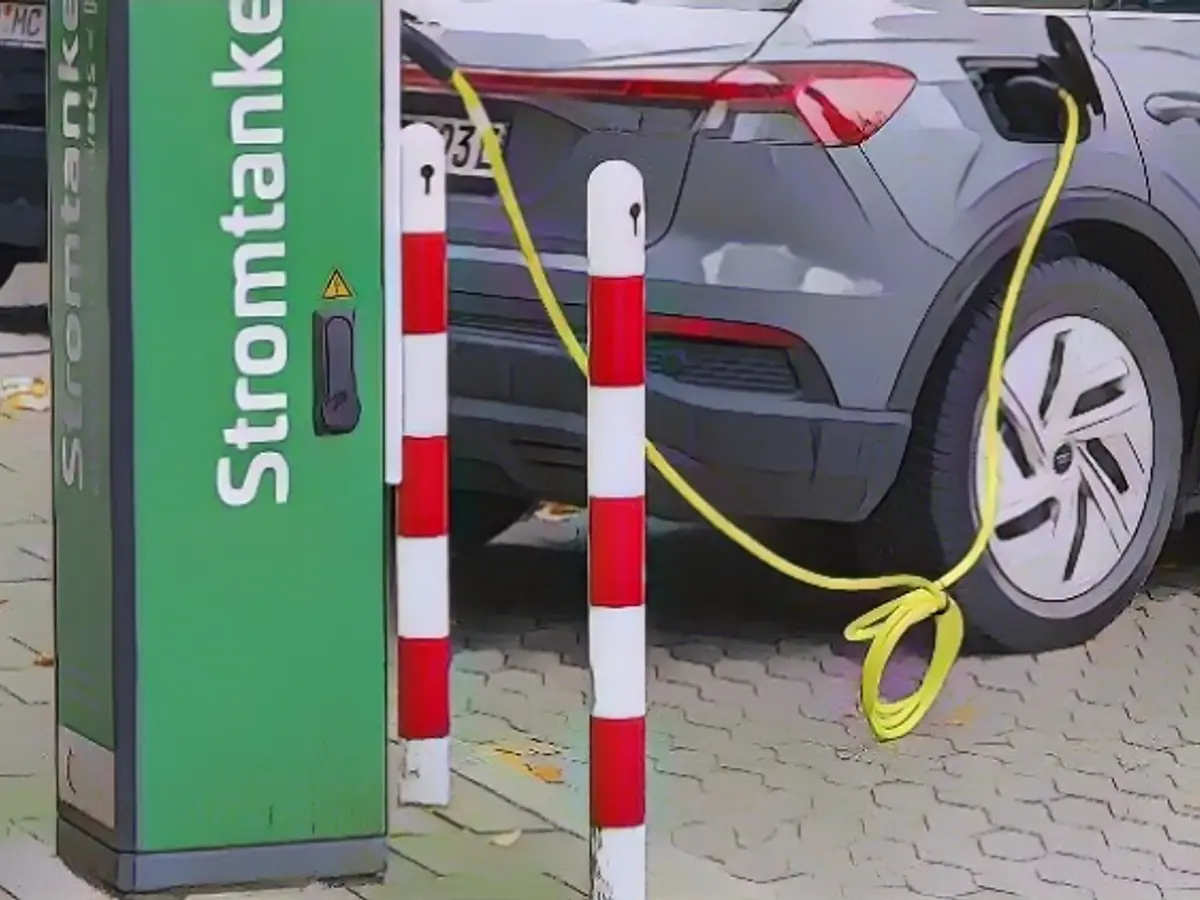Lindner Downplays Crisis Fears: "Germany Capable of Handling Budget Issues"
In a brisk tone, Federal Minister of Finance Lindner brushed off worries about an impending fiscal crisis if the traffic light coalition leaders fail to seal the details of the 2024 budget soon. Contrasting the situation in the U.S., where a government shutdown is a real possibility in the absence of a budget, Germany fortunately doesn't share the same predicament.
During a gathering in Brussels, Lindner uttered reassuring words about a potential decision on the 2024 budget being postponed until after the new year. Emphasizing the state's resilience, he declared, "No authority will shut down; no salaries will go unpaid. No one in need of support will be left out." The FDP politico acknowledged the SPD's position that the budget for 2024 might not pass the Bundestag prior to the year's end, yet expressed optimism that they would secure an accord "in the following days."
Unlike the U.S., Germany doesn't face the prospect of a government shutdown when a budget isn't in place. Thanks to the German Basic Law, provisional budget management enables the state to continue essential services, social benefits, and ongoing projects. Even without an agreed-upon budget, Article 111 of the Basic Law allows the federal government to maintain operational expenses, carry on approved construction projects, and fulfill contractual obligations.
However, initiatives planned for the upcoming year may not commence, and exceptions to this rule can only be granted in "unforeseen and unavoidable circumstances," as stipulated in Article 112. In such cases, Lindner, as Federal Minister of Finance, has the power to decide. Provisional budget management is a common occurrence in Germany, particularly following federal elections where there isn't enough time to draft and pass a new budget before the year's end.
Lindner reiterated the FDP's stance on the 17 billion euro budget deficit in 2024. Opposing the traffic light coalition's ambitious timetable, the FDP believes more time is necessary to address the issue. The SPD and Greens intended to resolve all matters before Christmas, while the FDP advocated for extended room to maneuver from the get-go.
Lindner noted that the coalition partners had ambitious deadlines, but there was no imminent crisis as long as they only managed to pass the budget law next year.
Further Reading:
The FDP, under the leadership of Christian Lindner, is advocating for extended time to counteract the 17 billion euro deficit in the 2024 budget, diverging from the ambitious timeline proposed by the traffic light coalition partners. Provisional budget management, an attribute of Germany's budgetary policy, remains in force due to the German Basic Law. This allows essential services, social benefits, and ongoing projects to continue, even without an agreed-upon budget, while the debt brake remains in effect.
Enrichment Insights:
Germany's provisional budget management in the absence of an agreed-upon budget is predominantly driven by ongoing political and fiscal challenges related to the debt brake. The following key circumstances and implications have arisen from these challenges:
- Debt Brake and Budget Crisis:
- The debt brake, which restricts the federal deficit to 0.35% of GDP and prohibits new debt for federal states, has led to heated debates about its effectiveness, contributing to the budget crisis.
- With challenges posed by the COVID-19 pandemic, the war in Ukraine, and economic stagnation, fiscal management has become increasingly complex.
- The conflict over the debt brake and budget management resulted in the breakdown of Chancellor Olaf Scholz's three-party ruling coalition in November 2024.
- Provisional Budget:
- Germany has been operating on a provisional budget since January 2025 due to the failure to reach an agreement on the budget.
- Temporary management of the budget is necessary until the formation of a new government and the drafting and passing of a full budget.
- Christian Lindner's Stand:
- Lindner attracted criticism for his stance on the debt brake, which contributed to the coalition's demise.
- To conceal excessive spending proposed by the SPD and the Greens, Lindner included provisions for global unallocated funds and commissioned expert opinions on the constitutional validity of expenditures.
- The coalition partners' inability to reach a budget agreement resulted in serious fiscal and political crises, including the transfer of €60 billion from a pandemic relief fund to the Climate and Transformation Fund, which was later deemed unconstitutional by the Constitutional Court.
- Implications:
- Provisional budget management has significant implications for Germany's fiscal policy and economic stability.
- The lack of a stable budget framework complicates macroeconomic correction, increases the risk of surpassing EU fiscal rules, and creates uncertainty in the financial markets.
- Future discussions on debt brake reform and the shape of the new ruling coalition will critically influence Germany's budgetary policies.








